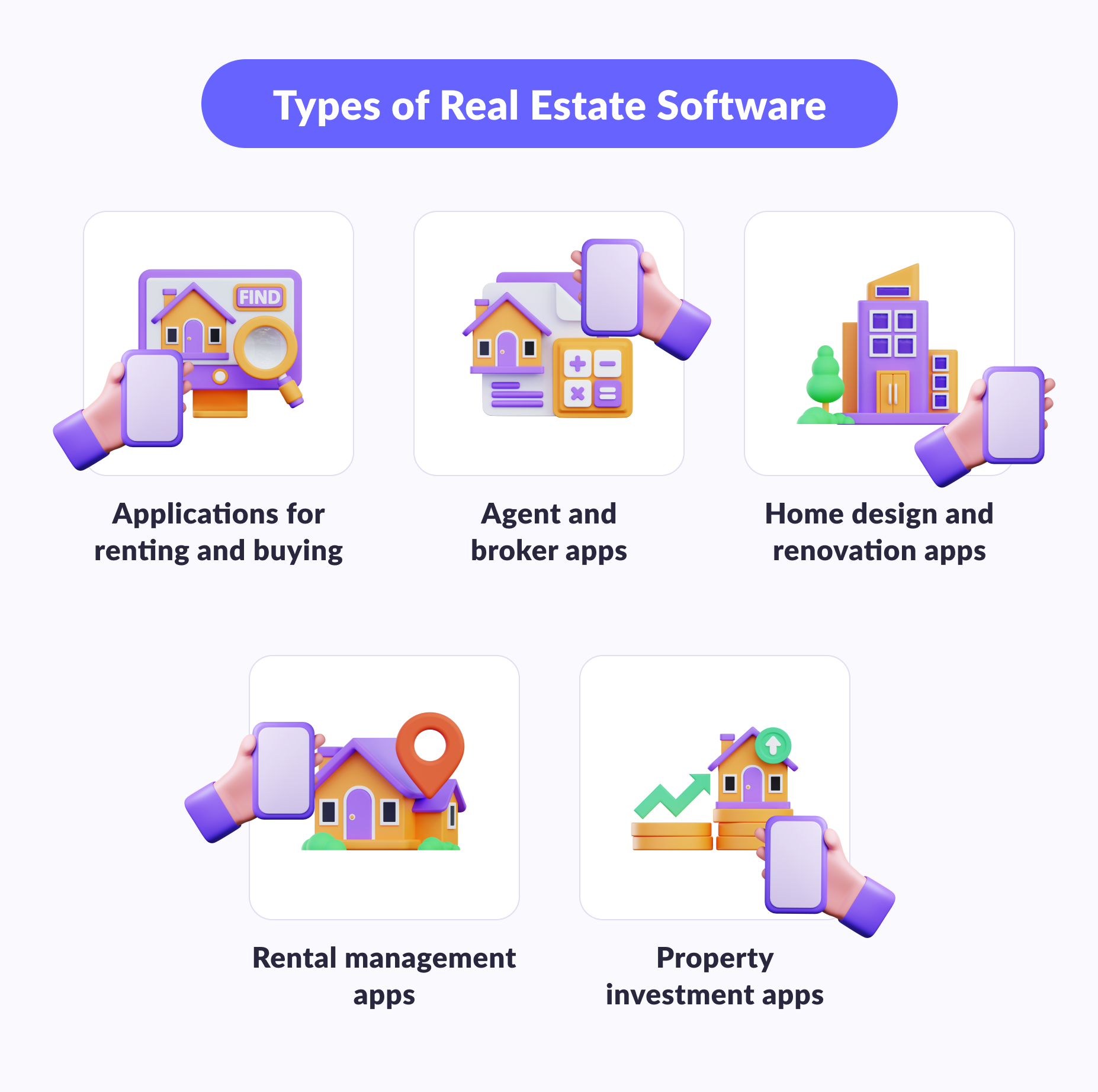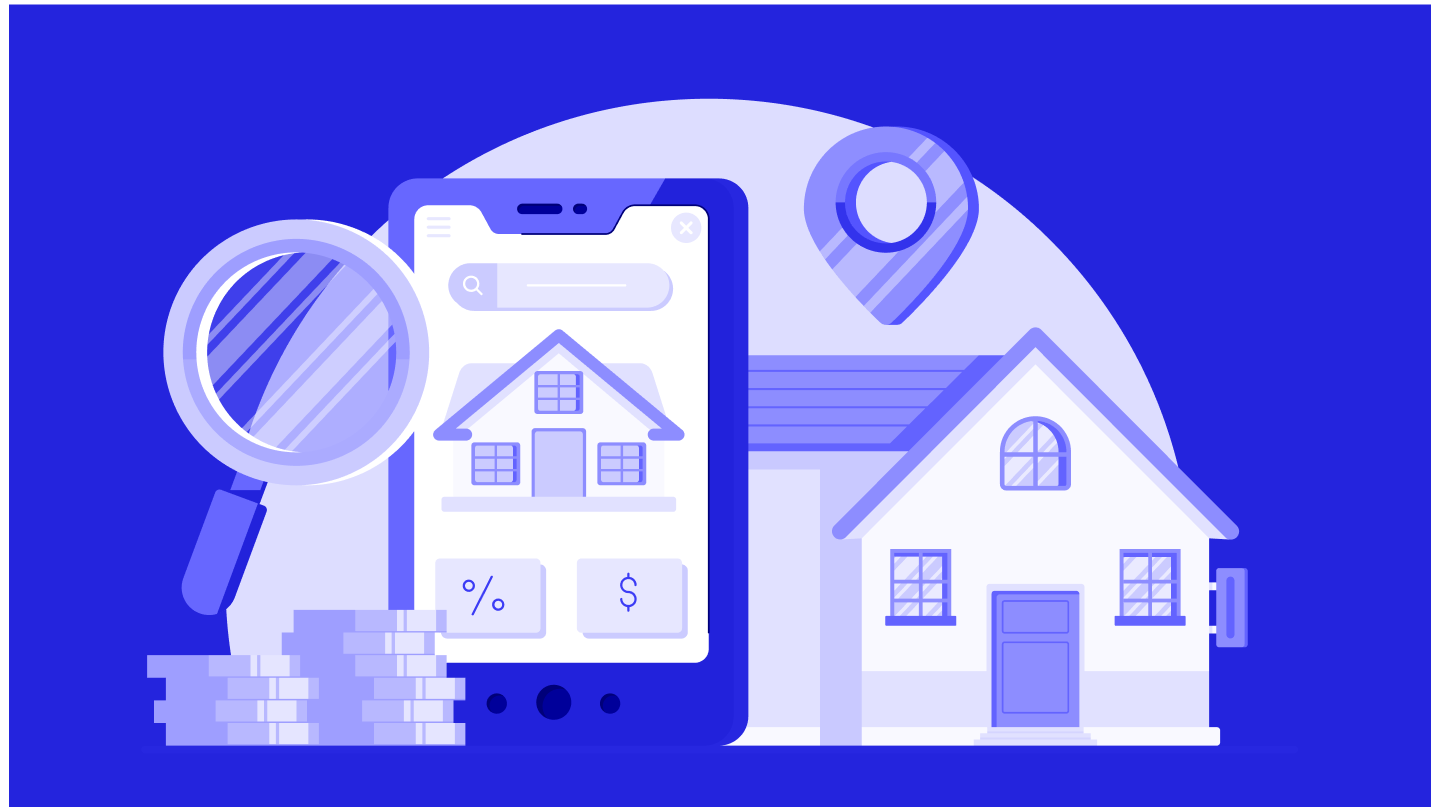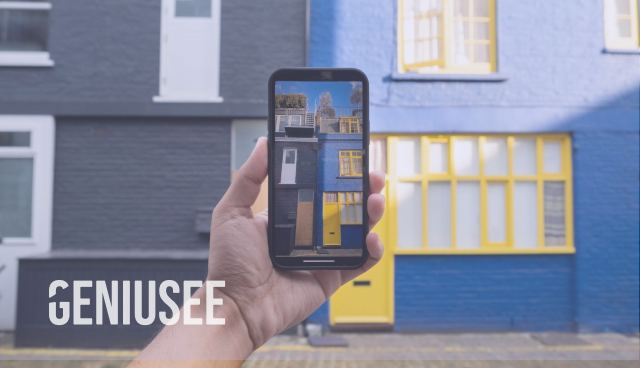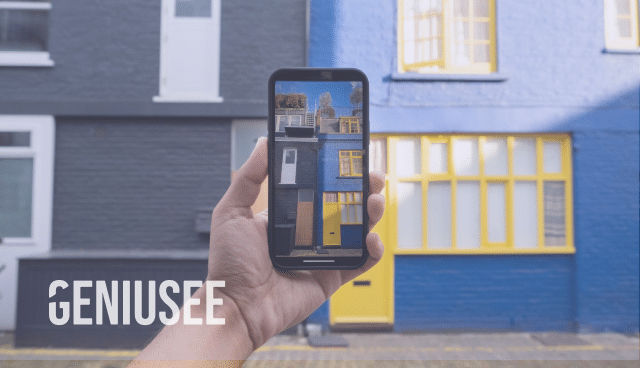The worldwide market value of real estate is one of the largest, and analysts predict it will reach $7.84 trillion by 2033. Mobile-first experiences are now the norm — no longer a differentiator, but a basic requirement. No matter if you work in residential rentals, property investment, or B2B real estate services, creating a custom mobile application can help you discover new revenue streams, improve operations, and personalize users experiences.
In 2025, real estate apps are full-fledged digital platforms supporting sales, leasing, investment, property management, and client servicing. A quality app combines various aspects of business and offers:
Direct contact with consumers without having to use third-party listing forums
Live data for decision-making for marketing, sales, and asset management.
Increased control of UI and feature set from the brand, as well as opportunities for monetization strategies of applications.
We prepared a brief guide to the real estate app development process, cost structure, features, and strategic approaches, tailored specifically for your business.
Business models supported by real estate apps in 2025

Contemporary real estate applications are far more than house listings and viewing. They are the infrastructure for new business models and operational strategies. Below, you will find the most striking directions:
Buy-to-rent platforms
Rental and buying apps give users access to various listings and filters to match their needs and preferences. From sourcing high yield assets and digital due diligence to onboarding tenants to payment management — all from mobile.
Fractional ownership & real estate tokenization
Fractional property investment platforms usually deal in tokenized assets. These apps allow users to co-own residential or commercial space with minimal entry capital, monitor asset performance, and trade shares on secondary markets.
Digital escrow and transaction management
Full-fledged transaction platforms that incorporate digital escrow, identification authentication, document e-signing, and compliance autochecks in one. These apps remove friction and legal minefields from cross-border or big-value transactions.
AI-powered brokerage automation
Apps for contemporary brokerages, with smart lead routing, AI-based pricing propositions, behavioral analytics, and automatic follow-ups. These help reduce human load and optimize closing rates and customer experience.
Embedded financing & mortgage-as-a-service
Such platforms pre-qualify users for mortgages in real time while integrating lending partners into the property browsing experience. Your users access faster approvals, increased conversion, and the ability for app owners to use additional monetization channels.


Thank you for Subscription!
Benefits of a real estate mobile app
CAC reduction through a direct mobile funnel
Your app minimizes dependency on third-party marketplaces and ad platforms. Using first-party data and push notifications, you can retarget leads and convert them for pennies on the dollar.
Faster sales cycle with instant virtual tours
With video walkthroughs and 3D tours, prospects can self-qualify quicker, eliminating back–and–forth dialogue and accelerating decision-making by up to 40% more.
Increased LTV with personalized in-app journeys
AI-powered property suggestions, saved queries, and custom notifications keep users engaged. Returning customers can close or reactivate ancillary services such as financing or renovation associates.
Enhanced risk management using predictive analytics
Intelligent alerts on anomalies in pricing, the market shift, or the buyer's intent minimize the incidences of inventory stagnation or mispriced listings, allowing agents and managers to base decisions in real time on data-driven analytics.
Operational efficiency with the help of workflow automation
In-app tools (automatic scheduling, e-signatures, messaging) reduce workload for agents and coordinators. More transactions can be processed with smaller margins and increasing margins.
When we develop real estate platforms, we align each of their features to a KPI, be that a decrease in churn, an increase in conversion, or a reduction in acquiring costs. The app does not become something just offered; instead, it becomes a performance driver.
Real estate app technology stack
To build a real estate platform, you will typically need to use a combination of innovations to provide various features and functionality. Here are some examples that may be included in a real estate app's technology stack:
Programming languages: You can build an application using various programming languages, such as Java, Swift, or Kotlin.
Front-end frameworks: To create a responsive and consistent user interface across devices, we use frameworks like React Native or Flutter for cross-platform development.
Databases: The platform may use a database to store and retrieve data, such as listings and user information. Such databases include MySQL, MongoDB, or Firebase.
APIs: The app may use APIs (Application Programming Interfaces) to retrieve data from other sources, such as real estate listing websites or mapping services.
Cloud services: You can use cloud services like AWS or Azure to host the app, its associated data, and services.
AI & LLM modules: Integrate large language models (LLMs) and computer vision to enable more intelligent property search, dynamic listing pricing, auto-tagging of listings, and contextual in-app chat support. This offloads repetitive tasks from brokers, improving UX.
Overall, the technologies used in a real estate app's technology stack will depend on your platform's specific requirements and goals.
Your vision, our code
Let's create some software wonders that drive growth! Explore our custom software development services
How do we build a real estate app?

1. Begin with a thorough market research
Before we lift a finger and lay our hands on one line of code, we immerse ourselves in the market. We examine the current real estate apps and analyze how they serve their users, identify inefficiencies, and look for holes in the business where we can do better. This includes user pain points and a SWOT analysis of competitors’ strengths. Through this research, we determine what to build and, most importantly, why it will matter.
2. Integrate a reliable property database
A strong data foundation gives a great real estate app a head start. Based on our approach to the business model, we build either a custom database or use trusted resources such as multiple listing service (MLS) systems. We ensure listings are accurate, up-to-date, and easy to manage for purchase, rent, or price estimation purposes. We value clean data with confirmed photos, pricing, and geolocation for tenant-oriented apps.
3. Start monetization from the basics
Revenue models aren’t an add-on; we plan them from the get-go. We have experience in incorporating subscription tiers for agents, promoted listings, priority push notifications, and in-app advertising for developers and agencies. Everything we add is meant to create value without sacrificing the user experience.
4. Nail the search & filter experience
We develop sophisticated filtering systems so customers can search by price, size, amenities, location, and commute times. The interface is always fast, responsive, and mobile-first.
5. Prioritize location functionality
For us, map integration is an essential feature, not a nice-to-have. We use Google Maps APIs or proprietary mapping tech to display information on nearby schools, transportation, and neighborhoods. Geolocation also works instantly on the spot, so users always see relevant results.
6. Build for easy integration
Make it easy from login to listing. Our apps allow social sign-in (Google, Facebook, Apple) and can be easily integrated with CRMs, property management systems, and third-party APIs. Every solution is cross-platform; we build for iOS, Android, and web to provide consistency and scale.
Best real estate mobile app development company
In the real estate app development world, many options exist for people who want to build real estate apps. Each company has its own strengths, which they use to create applications to meet the needs of its clients. Geniusee is a development team that can develop real estate industry solutions and help your users be satisfied. A team can build a simple MVP software with basic features and provide more advanced features with the custom real estate app. With years of mobile platform development experience, Geniusee can easily create an app with specialized features for a wide range of users.
The main real estate app features
If it's alright with you, let's briefly touch on the key features of real estate app development, as we already have an entire article dedicated to this topic.

Take a look!
Key Features Of The Real Estate App 2023
Find out what the advantages of real estate mobile app development are, how such applications work, and how they can help you increase business efficiency
Read onLet's briefly touch on the key features of real estate app development:
Smart property recommendations
Apply ML algorithms to analyze users’ preferences when searching for a property, search history in the app, and in-app behavior to provide highly relevant property suggestions. This personalized matching minimizes conflict in the rental process and improves user engagement.
Intelligent search with NLP
Let users search listings in everyday language, such as “studio with balcony near Central Park,” rather than tough filter menus. NLP assists in interpreting and preparing these queries as structured searches that are vastly superior to usability.
Real-time market insights
AI can identify market trends by examining internal and external datasets (pricing dynamics, location popularity, or availability) and present findings to users via alerts, dashboards, or predictive analytics. This is particularly important to landlords who deal with inventory and set prices competitively.
AI-powered match of apartment and municipal data
As in our apartment rental platform, AI models can extract a disorganized listing of apartments and map it to municipality-level data, such as building safety reports or neighborhood metrics. This allows your users to get a better idea of the place's livability and to understand the transparency of the living conditions in apartments, an innovative functionality that only a few platforms can boast of.
Automated lead qualification
AI can rank leads using user behavior, intent signals, and profile data, making sure high-value renters are top-of-mind for real estate agents. This eliminates the flurry in communication and cuts down on time spent on cold leads.
Chatbots & virtual assistants
AI-powered chatbots can respond to FAQs, schedule tours, and even give instant property information at all times of the day. By having these become part of the app, you decrease response times and enhance support without increasing the headcount.
Dynamic pricing & affordability calculators
It’s time to move beyond plain mortgage and rent calculators. Incorporate predictive models that consider income, the area's demand at a given time, seasonality, and user credit profiles to provide realistic affordability estimates in real time.
Document automation & smart e-signature
Speed up lease agreements with AI-supported document generation and e-signature flows. AI could discover missing fields, check the input data, and even point out strange contract clauses for analysis, thus speeding up and reducing the risk of the renting process.
AR/VR property view with AI enhancements
Implement a computer vision to create immersive 3D tours. AI will take the viewer on a tour to points of interest, a renovated kitchen, energy-efficient features, and building amenities, in consultation with their priorities.
Agent analytics dashboards
Deploy AI to measure performance, response rates, and client satisfaction through dashboard creation. Converting this into CRM systems enables agents and landlords to be data-driven and continually improve.
How much does it cost to create a real estate mobile app?
It's important to note that these are just rough estimates, and the actual cost of your app will depend on your specific requirements and goals. Mind that software development is just one part of the total cost of building a real estate app. You’ll also need to factor in ongoing maintenance, support, and marketing expenses to reach your target users.
One effective way to reduce development costs is by outsourcing. For instance, building the same app in Ukraine may cost between $50,000 and $150,000 and require significant time. A Zillow-like MVP, for example, could take around 800 development hours. For more holistic estimation, we offer a deeper look at cost comparisons of software development services across global outsourcing hubs.
Conclusion
In today’s real estate landscape, mobile apps are no longer just property browsers — they’re key drivers of industry innovation. With AI-powered brokerage automation, digital escrow, and models like buy-to-rent and fractional ownership, real estate apps can deliver transformative impact.
To build a successful app in 2025, focus on the right tech architecture, user engagement strategy, and monetization model. Embedding capabilities like AI and predictive analytics can streamline operations, create immersive property experiences, and align with evolving ownership trends to drive user value and business growth.
We’re here to support your app development journey, from concept to launch. Let us help scale your business and elevate user engagement. Get in touch with our experts to discuss your case.





















